Iran-Backed Groups Launch More Attacks On US Forces In Iraq, Syria
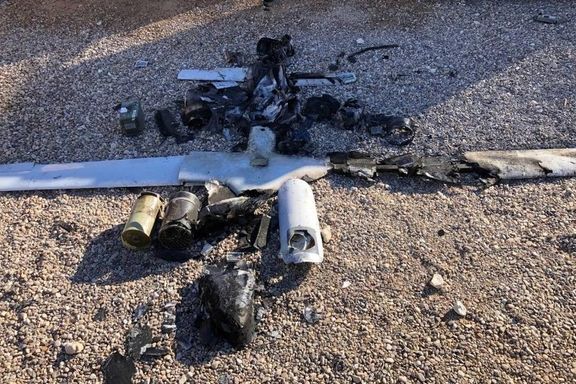
Iran-backed militant groups launched four more attacks against US bases in Iraq and Syria on Thursday with rockets and drones, but there were no casualties or damage.

Iran-backed militant groups launched four more attacks against US bases in Iraq and Syria on Thursday with rockets and drones, but there were no casualties or damage.
Reuters quoted a US official, who spoke on the condition of anonymity, as saying that US and international forces were attacked at two sites in northeastern Syria with multiple rockets and a one-way attack drone. Since war broke out between Israel and Hamas, Iranian proxy forces have launched more than 70 such attacks, leaving many servicemen injured.
In Iraq, multiple one-way drones were launched at the Ain Al-Asad airbase west of Baghdad and a drone was launched at a base housing US force near Erbil airport in northern Iraq.
A group calling itself the Islamic Resistance in Iraq, which analysts say is a catch-all for several Iran-aligned Iraqi armed groups, had claimed attacks on those locations earlier in the day.
The attacks come the day after the U.S. struck the Iran-aligned Kataeb Hezbollah (KH) armed group south of Baghdad in an attack that KH said had left eight members dead.
The attack was condemned by the Iraqi government as escalatory and a violation of sovereignty.
US officials said the United States had struck Iran-backed groups after an escalation in their attacks that have targeted US and international forces dozens of times. The US has retaliated just a handful of times.
As of Thursday, there had been 36 attacks in Iraq and 37 in Syria, the US military official said.
Iran has avoided direct military involvement in the war, but has used its network of armed groups to target both Israel and US forces in the region.
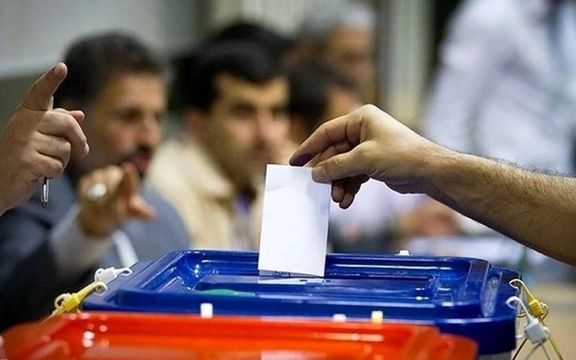
Some Iranian politicians have lashed out at their hardliner rivals for doubling down on their idea of monopolization of power known as "political purification".
A centrist politician, Mansoor Haqiqatpoor criticized the hardliners who have sway in the parliament and in President Ebrahim Raisi’s government, arguing that real number of those advocating purges and political purification is just 98, explaining sarcastically that "There are only two busloads of them!"
Hardliners launched their purification campaign earlier this year, seeking to consolidate all political power within the ranks of the Paydari Party. The campaign has gone much further than just the government, with hundreds of university professors, teachers and artists fired or banned from working.
The takeover by hardliner, however, began in early 2020, when the Guardian Council that has the power to vet candidates, disqualified hundreds of individuals from running for parliament. The same trend continued in the 2021 presidential elections, when all serious contenders were barred from running and Ebrahim Raisi cruised to the presidency.
Haqiqatpoor went on to say, "We can confront the advocates of political purification if the people turn up at polls" in the upcoming parliamentary elections" in March 2024.
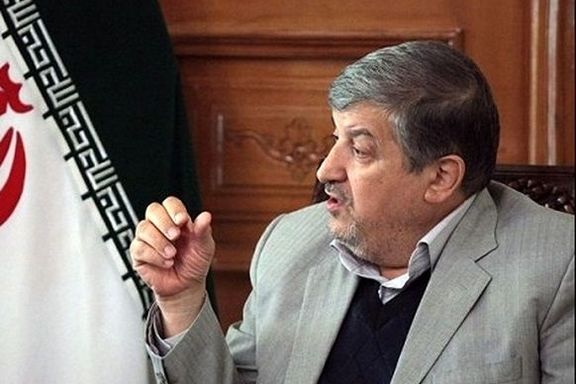
He accused the members of ultraconservative Paydari Party of joining hands with hardliner individuals (meaning clerics) in Qom, the home of Iran's biggest Shiite seminary, and created the alliance that is pursuing the monopolization process on the Iranian political landscape. "They are currently engineering the purification process," he said.
Haqiqatpoor emphasized, "I hope the Guardian Council will confront these hardliners who are promoting the rhetoric of dictatorship." He accused Paydari leader Sadeq Mahsouli of disregarding the capabilities and merits of most Iranians, aiming to limit government membership to his party members. Haqiqatpoor also alleged that Paydari's leaders, wealthy individuals, exploit the country's resources for the benefit of the party.
Referring to Paydari's influence in Imam Sadeq University, Haqiqatpoor said: "The management of all the petrochemical plants of the country has been handed over to Imam Sadeq University alumni." He asked: "Doesn't have Iran any other university?"
He said Paydari is already controlling the government, the parliament, the state television, the ultraconservative Kayhan newspaper, the national Pension Fund and many other institutions. Nonetheless, he characterized Paydari members as "political dwarves."
Regardless of Paydari's all-out onslaught to monopolize political power in Iran and its political rivals' hope in elections as a means of changing the situation, reformist politician Hassan Rasouli told reporters in Tehran that except hardline conservatives who are fiercely competing with each other over winning the next parliament, no one else in Iran shows any interest in the upcoming elections.
Rasouli stated that "There is no movement among other political groups and parties indicating that they have any interest in the elections." He explained that "Three factors need to be present to facilitate a competitive election: People's reasonable satisfaction with the country's political, economic and cultural situation, various groups and parties' representation in the election, and the healthy process of the elections."
He explained that currently, there is a high degree of popular dissatisfaction and unhappiness about the way the government operates. Only a swift action on the part of the government can provide a representative basket of candidates for the voters to choose from.
"Obviously, if this dissatisfaction continues until March 1, no one can have any hope about a high turnout in the upcoming elections," Rasouli reiterated. In that case, he added, the turnout is likely to be even less than the 2020 elections which was the lowest of its kind in Iran in four decades.
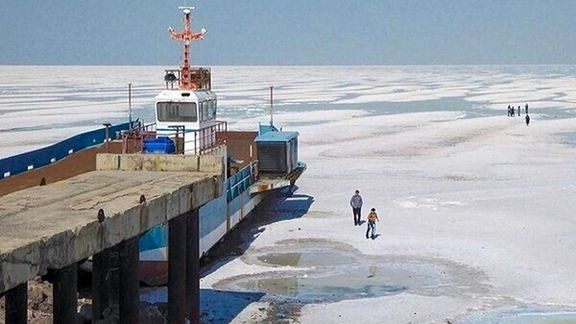
Iranian daily Etemad has published a report about the situation of Lake Urmia, saying the lake retains only four percent of its water that means it is “dead.”
Comparing recent aerial photos of the lake with those of the previous year, the newspaper revealed an alarming 80% reduction in the water surface area in one year. The lake, once spanning 878 square kilometers, has dwindled to a mere 170 square kilometers, marking a mere 4% of its former expanse.
Despite the concerning visuals suggesting the impending demise of Lake Urmia, the spokesperson for Iran’s water industry rejected speculations in September, asserting that the lake had not completely dried up. Firouz Ghasemzadeh, the Director of the National Water Information and Data Office, expressed hope that“good precipitation during the winter would contribute to the rise of water levels in the lake."
Situated between East Azarbaijan and West Azarbaijan provinces in northwestern Iran, Lake Urmia was once the largest lake in the Middle East and the sixth-largest saltwater lake globally, with an original surface area of 5,200 square kilometers in the 1970s. However, mismanagement, climate change, prolonged droughts, and excessive water consumption have led to a significant reduction in its size, posing severe environmental consequences. The lake's shrinkage by nearly 95% in volume over the past two decades is also attributed to illegal groundwater extraction and diverting water from the Zarrineh Rud, a once-bountiful river feeding Lake Urmia.
The desiccation of Lake Urmia has turned its dry bed into a major source of airborne dust pollution, exacerbating health, industrial, social, and economic damages caused by dust storms. The critical situation underscores the urgent need to address similar challenges faced by other lakes and wetlands across the country, including Shadegan, Hoorolazim, Bakhtegan, Hamoun-e Jazmourian, Ghavkhouni, and more.
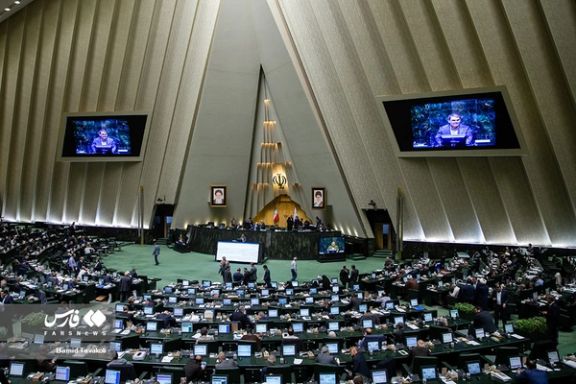
A sharp increase in taxes in next year’s budget bill has shocked both the public and analysts in Iran, signaling a deepening of the current economic crisis.
Entekhab news website in Tehran reported that according to the budget bill, even the monthly incomes of 100 to 140 million rials ($200 to $280) will be subject to a 10 percent tax.
Jahan-e-Sanat daily also warned that the Iranian government has counted on “inflation tax” to fill the next year’s budget. The Iranian calendar and fiscal year begins on March 21, 2024, and the government has already submitted its budget draft bill to parliament.
In order to close its huge budget deficit, the government has projected a 50-percent increase in taxes of various kind compared to this year’s budget. Total expected tax revenues will reach over 11,220 billion rials ($22.44 billion), Jahan-e-Sanat said.
The total government budget will reach 24,620 billion rials ($49.2 billion) next year, which shows an increase of 18.2 percent compared to this year’s budget, the report added.
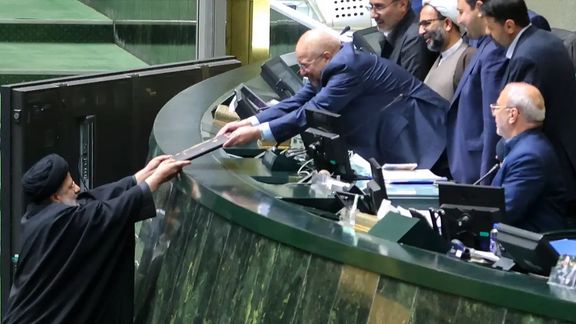
That is to say, the tax revenues will account for more than 45 percent of the Iranian government’s operating budget, although the 18.2 percent overall budget increase of half what it was this year. Some media outlets wondered what the reason is for a smaller than anticipated budget growth- less than half of the current inflation rate. Some speculated that this can be interpreted as an austerity measure.
Khabaronline news website also called the tax hikes “odd.,” as the government claims more oil exports and insists that it is able to repatriate the income despite US banking sanctions. Iranian oil exports have reached 1.5 million barrels per day from a low of 300,000 barrels in 2019, but the impact of higher revenues is not felt in the economy.
The government has tried to increase “luxury” taxes, as average Iranian live on less than $200 a month. According to Khabaronline, passenger cars worth over 30 billion rials ($60,000) will be subject to a 1 percent annual tax.
Large homes, garden, villas and lands whose value are more than 250 billion rials ($500,000) will also be taxed, the report added.
Another point of significance in the next year’s budget bill is that the government’s currency resources and expenditures have been counted in terms of euro instead of the US dollar. It seems that the government has decided to replace dollar with euro as the basis of its transactions, reformist Arman Daily noted. This is more of a symbolic ideological gesture against the United States.
Tehran officials have time and again stressed the necessity of removing the US dollar from the country’s limited economic transactions with the international community.
During a November 2017 meeting with Russian President Vladimir Putin, Iran's Supreme Leader Ali Khamenei called for the elimination of the dollar in both bilateral and multilateral economic exchanges, aiming to counteract US sanctions.
Aftabnews, a reformist news website, also warned that the government’s general budget next year will grow only by 18 percent compared to this year, which is a far cry from the inflation rate, estimated to be at least 40 percent.
Discussing the worrisome aspects of the next year’s budget bill, reformist daily Ham-Mihan noted that the bill carries a clear messages: the US sanctions will continue and will even get tougher; there will be no economic improvement next year.
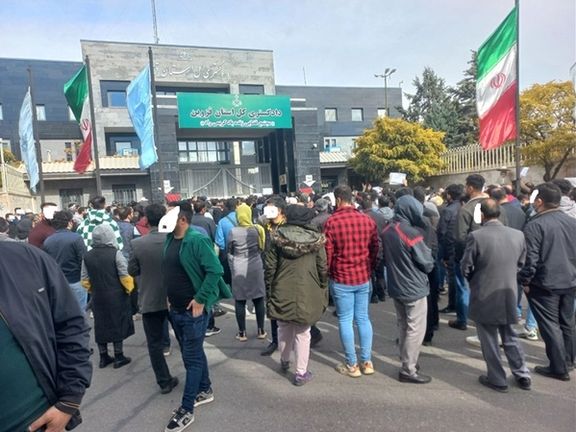
In a tense confrontation, security forces attacked a gathering of individuals who lost their money to the fraud of Rezayat Khodro Taravat Novin, a vehicle leasing company in Qazvin, west of Tehran.
The incident happened on Thursday when victims gathered in front of the governor's office in Qazvin, expressing their grievances over financial losses incurred at the hands of the company.
The victims claim the company embezzled a staggering 300 trillion rials (approximately $600 billion) through schemes for pre-selling cars. For several months, hundreds of people have been staging protests in Tehran, Qazvin, and Takestan, demanding justice and restitution. The nationwide fraud involves at least 38,000 people.
Recent videos show security forces using teargas and water cannons against the protesters. Government forces on several occasions attacked the protests by the victims.
Over the past three months, the Qazvin judiciary has detained managers from Rezayat Khodro Taravat Novin, announcing that all assets belonging to the company's CEOs will be seized.
Mohammadreza Ghaffari, the owner of the company, reportedly moved a portion of the capital abroad. The judiciary says the victims' gatherings are illegal, citing concerns about disturbances in public order.
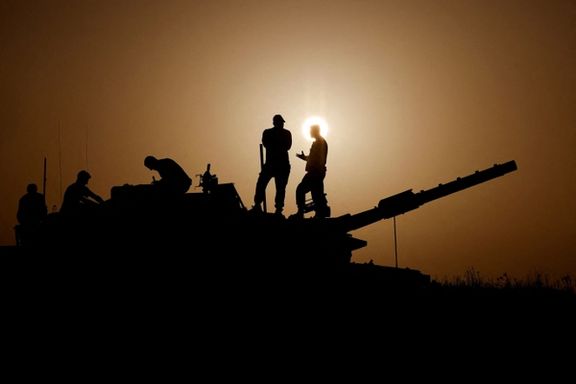
Nine Iranian political prisoners denounced both Hamas and Israel actions in Gaza, warning that potential Iranian involvement would benefit the Islamic Republic.
In a statement released from the Evin Prison, the political prisoners took to task Tehran’s “proxy and devastating policies” in the region, stressing that the war is a “blessing” for reactionary rulers.
“The eight-year Iran-Iraq war helped stabilize the regime and the killing of thousands of political prisoners” at that time, the statement added.
They warned that in the event of the expansion of the ongoing Middle Eastern conflict, the Iranian regime would intensify its crackdown against civil and political activists, women and student movements, and religious minorities such as the Baha'i community.
Anisha Asadollahi, Golrokh Iraee, Reza Shahabi, Keyvan Mohtadi, and Arash Johari are among the signatories of this statement.
Earlier in the month, the UN special rapporteur on human rights in Iran, Javaid Rehman, warned that the Israel-Gaza War bolsters repression inside Iran by deflecting attention from internal criticism of the regime.
The political prisoners also questioned the sincerity of Tehran’s claims regarding its support of the Palestinian cause.
“The government, responsible for the deaths of thousands of children and teenagers in the past year and beyond, is now attempting to mask its reactionary nature under the guise of defending the Palestinian people,” read the statement.
Iran witnessed massive protests last year after Mahsa Jina Amini, a 22-year-old girl, lost her life in morality police custody for not observing mandatory hijab codes. According to reports, more than 500 people, including children and teenagers, were killed by the regime’s security forces last year.